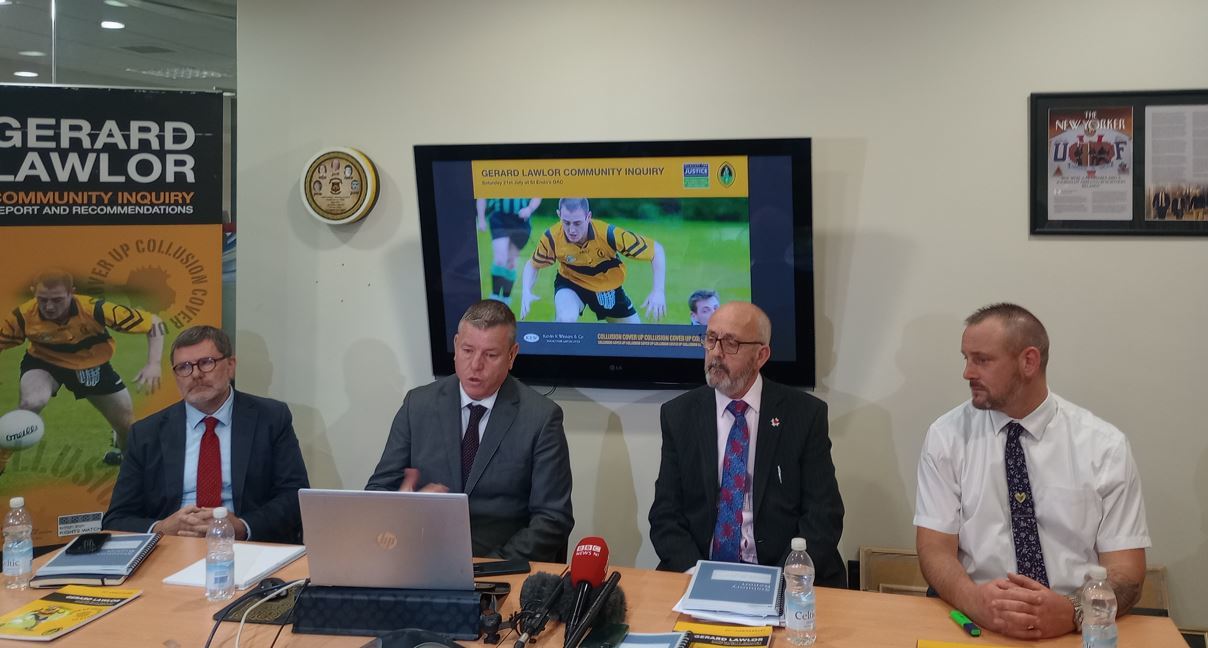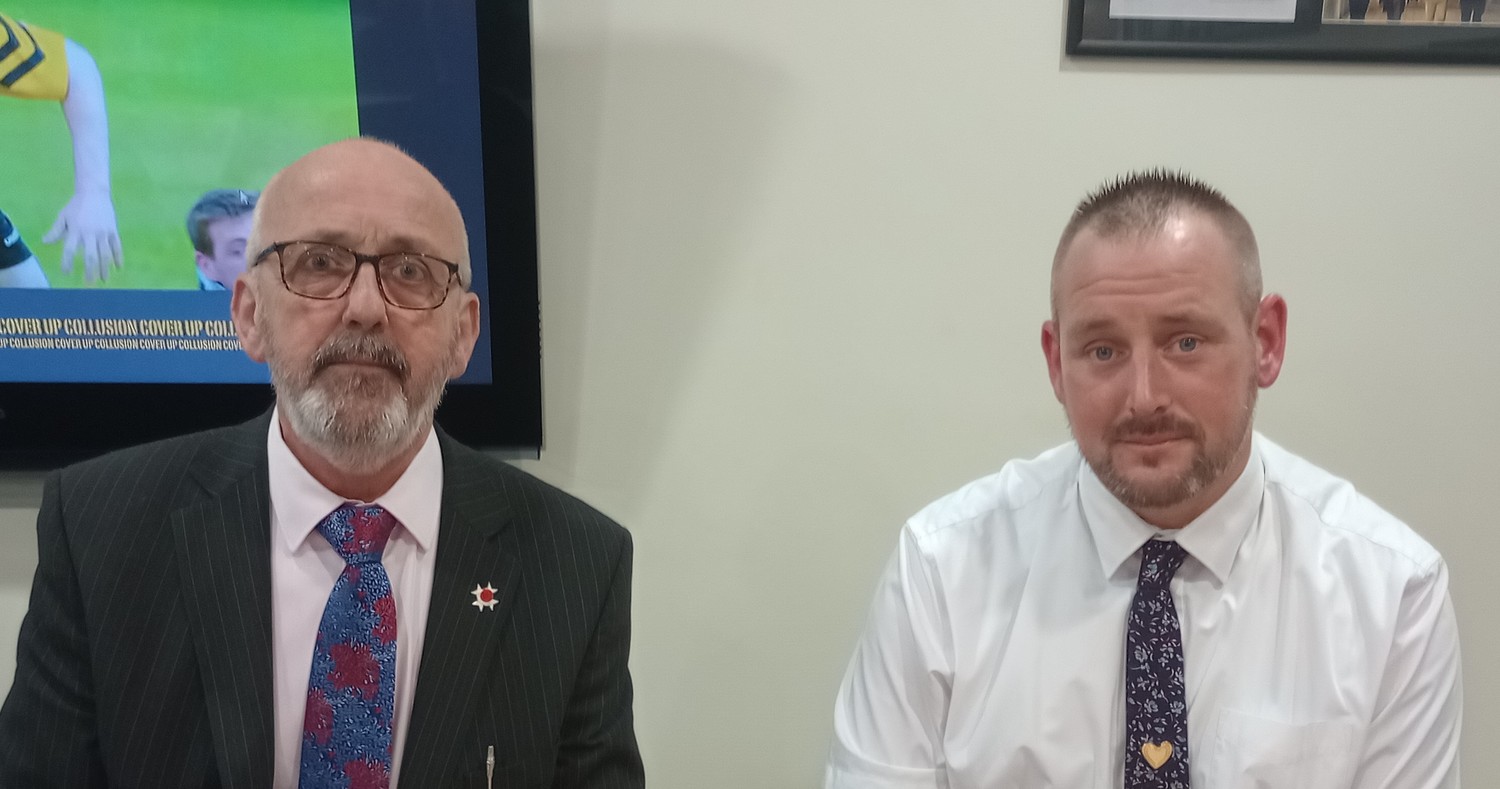THE father of a teenager murdered by loyalists more than two decades ago has spoken of his anguish that “no one has been held accountable” for his son's death.
A Police Ombudsman’s report into the murder of Gerard Lawlor (19), published today, highlighted a string of “significant failings” in the PSNI investigation, including a year-long delay in arresting two suspects.
However, it found no evidence of collusion - a finding Mr Lawlor’s family have rejected.
Mr Lawlor, a forklift driver who had a partner and an 18-month-old son, was shot dead by loyalists shortly after midnight on July 22 2002 as he walked home along the Floral Road in north Belfast after a night out at the Bellevue Arms pub.
No one has ever been charged with Mr Lawlor’s murder, which was later claimed by the Red Hand Defenders - a cover name for the UDA.
Mr Lawlor’s father John told The Detail that he was disappointed by the findings of the Ombudsman’s report.
He said although the report contained some new information for the family, who first made a complaint to the Ombudsman in 2004, “the core problems are still there”.
“Nobody is being held accountable,” he said.
He added: “There seems to be a part of society that can just walk around with impunity”.
“And that’s the bit that’s hard to swallow.”
He said Gerard Lawlor’s son, Josh, who was just a baby when his father was murdered and is now living in England, recently asked him for an update on the case.
“What do you tell him?” he said.
“We are being let down. This should have been wrapped up years ago.
"I should be able to present this to the boys and say ‘that’s this done’.”
Mr Lawlor’s murder was one of the first to be investigated by the PSNI after it was established in November 2001.
Police Ombudsman Marie Anderson found that the PSNI could not have prevented the killing and there was no evidence that the force “or any of its officers sought to protect any informant”.
She added: “I have therefore concluded that there is nothing uncovered by this investigation that would support conclusions that there was ‘collusion’ or collusive behaviour on the part of any police officer”.
The report highlighted several failings in the investigation including:
- that a police decision not to immediately arrest two suspects, known as Person H and Person I, but instead pursue “sensitive enquiries” to gather evidence was “flawed”
- a year-long delay in arresting the two suspects meant potential forensic and other evidence may have been lost. The suspects were later released without charge
- not all relevant telecommunications data, including two phone numbers linked to one of the suspects, was collected
- police did not link the murder with other sectarian attacks
- not all intelligence was shared with the senior investigating officer
- a family liaison officer assigned to the Lawlor family changed roles in September 2022 and was not replaced.
On the evening of July 21, 2002, there were five gun attacks in north Belfast - four against Catholics. Mr Lawlor's death was the sixth attack within 24 hours.
The report highlighted a failure to adequately link Mr Lawlor’s murder to other attacks.
It found that the senior investigating officer in Mr Lawlor’s case had linked his murder to the earlier attempted murders on July 21, 2002, and one in September 2000.
Police had intelligence that two people may have had a role in sanctioning the attacks, but no enquiries into these people were made during the Lawlor murder investigation.
Mrs Anderson noted: “I am of the view that the investigation into the other attacks should have been coordinated and subject to strategic oversight, given their proximity to one another and within the wider context of loyalist paramilitary attacks on 21 July 2002.”
The PSNI said it would consider the report’s findings.
Detective Chief Superintendent Ian Saunders said: “I recognise the continued pain and suffering felt by the family of Gerard Lawlor. Their suffering does not fade and my thoughts are with them today.”
Mr Lawlor was the last Catholic to be killed by loyalist paramilitaries. A member of St Enda's GAC in Glengormley, he was the fifth person at the club to be killed during the Troubles.

(L-R) Mark Thompson, Relatives for Justice; Niall Murphy, KRW Law; John Lawlor and Conor Lawlor. Photo by Luke Butterly
The Lawlor family’s solicitor, Niall Murphy of KRW Law, said failings by police “impacted the opportunity to catch and convict Gerard’s murders”.
“Today's report details a remarkable analysis of mismanagement of intelligence,” he said.
“The Lawlor family respectfully but wholeheartedly disagrees with the Ombudsman's analysis that collusive behaviours were not an impediment to the murder investigation.”
Mark Thompson from Relatives for Justice said the report clearly highlighted failures in the PSNI investigation.
“The killers of Gerard Lawlor are walking free today because of police ineptitude, inability, unprofessionalism,” he said.
Following the publication of the Ombudsman’s report, an inquest can now be held into his death.
Mr Murphy said he expected a preliminary inquest hearing would be held in the coming months.
 By
By

